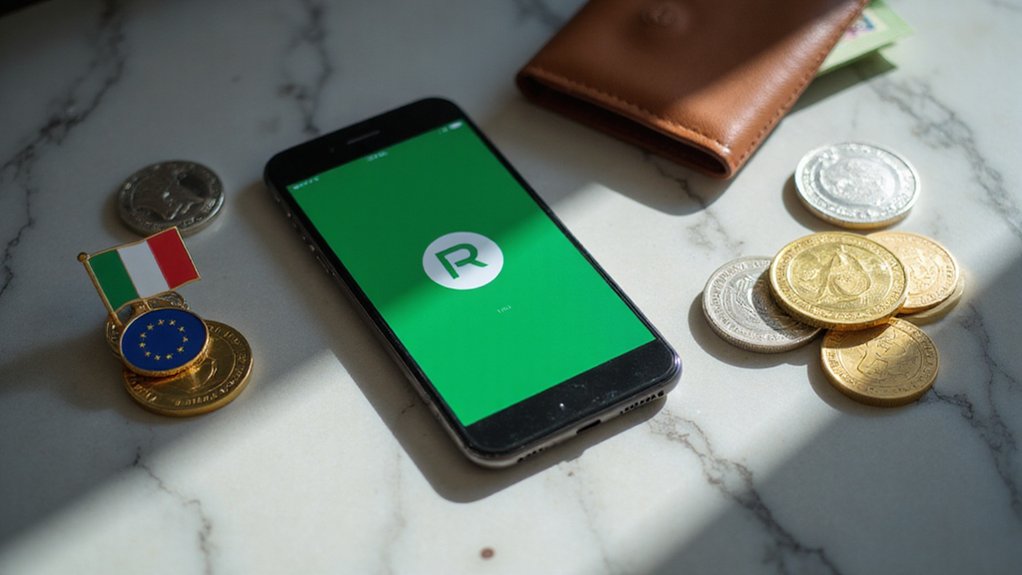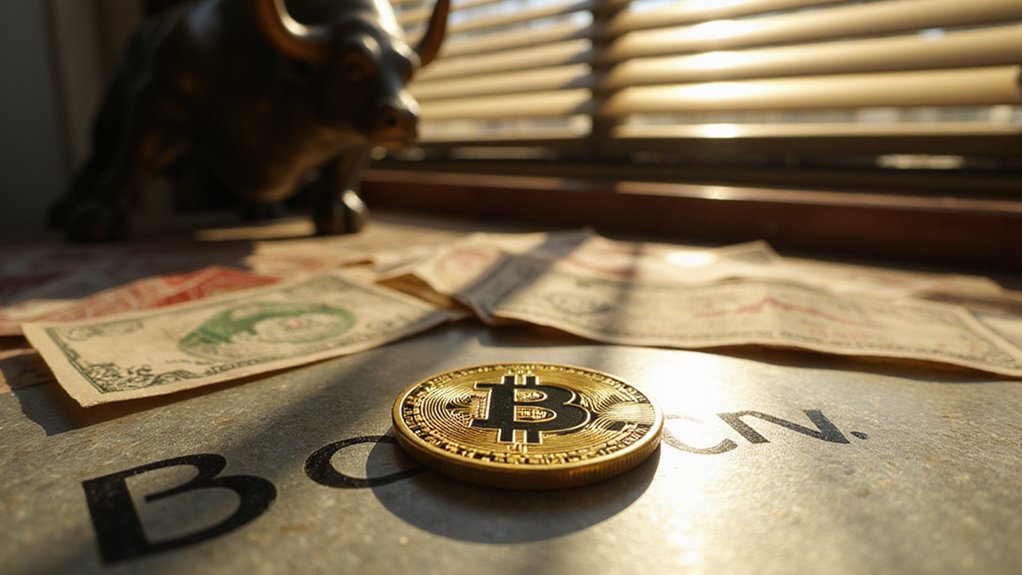While most traditional brokerages continue to grapple with the complexities of cryptocurrency integration, Robinhood has decided to leap headfirst into the tokenized securities arena with the audacity that has become its trademark—launching stock tokens for European customers that blur the lines between traditional equity trading and blockchain innovation.
Robinhood charges into tokenized securities with characteristic audacity while traditional brokerages remain paralyzed by cryptocurrency complexities.
The company’s European debut features over 200 U.S. stocks and ETFs—including the usual suspects like Apple, Nvidia, and Microsoft—packaged as tokens on Arbitrum’s Layer 2 network. The proposition is characteristically Robinhood: zero-commission trading with 24/5 market access (because apparently even tokenized assets need weekends), complete with dividend payments credited directly through the app.
It’s democratization through digitization, though one might wonder if European investors were particularly clamoring for blockchain-wrapped American equities.
More intriguingly, Robinhood isn’t content to remain a tenant on someone else’s blockchain. The company is constructing its own Layer 2 network based on Arbitrum technology, specifically designed for tokenized real-world assets. This proprietary infrastructure promises 24/7 trading capabilities, self-custody options, and seamless cross-chain bridging—essentially positioning itself as the anti-NYSE for the tokenized generation. Unlike traditional exchanges that custody user funds, this approach provides traders with greater control over their assets through smart contracts that eliminate the need for intermediaries. The company has also engineered an innovative Instant Boost feature offering a 1% deposit boost on crypto deposits for both U.S. and EU investors.
The expansion extends beyond equity tokens into crypto perpetual futures with 3x leverage for European users, while domestic customers gain access to Ethereum and Solana staking. The company has also deployed an AI-powered investing assistant dubbed Cortex (because every fintech platform apparently requires an artificial intelligence mascot) alongside smart exchange routing features.
This aggressive expansion benefits from fortuitous timing: the post-2024 election regulatory thaw in Washington has softened SEC enforcement, while European frameworks have grown more accommodating to tokenized securities. The company has strategically reinstated Solana and XRP trading after regulatory pressures eased following the SEC’s decision to drop previous lawsuits.
Robinhood’s recent acquisitions—crypto exchange Bitstamp and Canadian fintech WonderFi—underscore its commitment to becoming the definitive gateway for tokenized asset trading.
The market’s response was predictably enthusiastic, with Robinhood’s stock climbing 4% to $91 following the announcement. Whether this represents genuine innovation or elaborate financial engineering wrapped in blockchain rhetoric remains to be seen, but Robinhood’s willingness to experiment with tokenized securities while competitors deliberate suggests the company understands that in fintech, hesitation often proves more costly than miscalculation.









